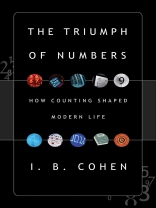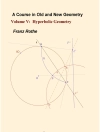From the pyramids to mortality tables, Galileo to Florence Nightingale, a vibrant history of numbers and the birth of statistics.
The great historian of science I. B. Cohen explores how numbers have come to assume a leading role in science, in the operations and structure of government, in marketing, and in many other aspects of daily life. Consulting and collecting numbers has been a feature of human affairs since antiquity—taxes, head counts for military service—but not until the Scientific Revolution in the twelfth century did social numbers such as births, deaths, and marriages begin to be analyzed. Cohen shines a new light on familiar figures such as Thomas Jefferson, Benjamin Franklin, and Charles Dickens; and he reveals Florence Nightingale to be a passionate statistician. Cohen has left us with an engaging and accessible history of numbers, an appreciation of the essential nature of statistics.Sobre o autor
I. Bernard Cohen (1914—2003) was Victor S. Thomas Professor, Emeritus, of the History of Science at Harvard University, where he taught from 1942 to 1984. He was the first American to receive the degree of Ph.D. in the History of Science. He was the author of many books, including Science and the Founding Fathers: Science in the Political Thought of Thomas Jefferson, Benjamin Franklin, John Adams, and James Madison; The Science of Benjamin Franklin; Revolution in Science; The Newtonian Revolution; The Birth of a New Physics; and, with Anne Whitman, Isaac Newtonís Principia: A New Translation of Newtonís Mathematical Principles of Natural Philosophy. He edited several series of works, including Harvard Monographs in the History of Science, Three Centuries of Science in America, and the ongoing Studies & Texts in the History of Computing. He was a Fellow of the American Academy of Arts and Sciences, the American Association for the Advancement of Science, the Royal Astronomical Society, the British Academy, and the Accademia Nazionale dei Lincei.






